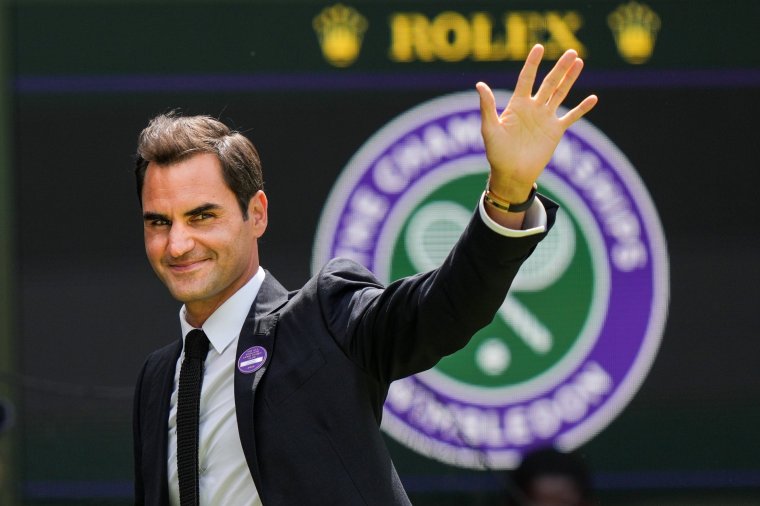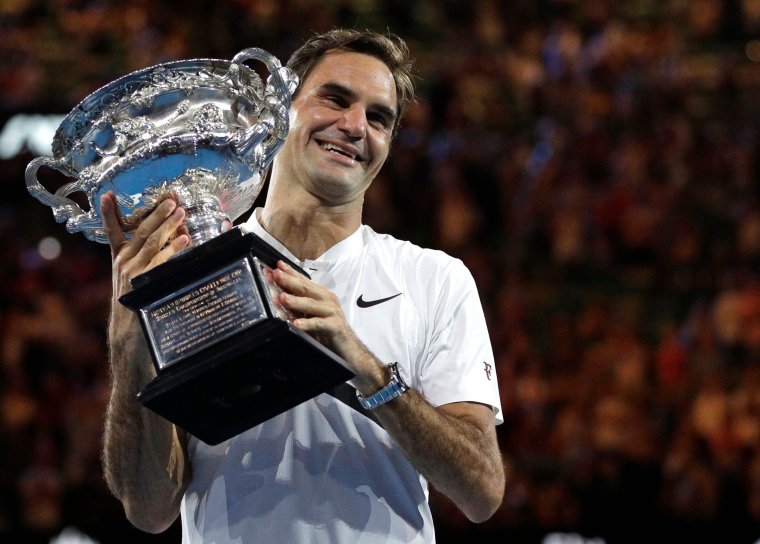Fairytale farewells are not always guaranteed, even for the greats.
Serena Williams, who has already teased a potential return, was at least able to receive the red-carpet treatment her trailblazing career warranted in New York recently, with the montages plentiful and the bouquets brimming with colour during her grand slam finale at Flushing Meadows. The 40-year-old miraculously had us contemplating, until her third-round exit, whether she could actually go the distance.
Roger Federer who announced his retirement last week, bears the ignominy of his final grand slam appearance ending with a 6-0 set in his quarter-final defeat to Hubert Hurkacz at Wimbledon last year.
Wimbledon was at least the stage for eight of his 20 major triumphs, and so Federer, 41, can at least tread into his retirement slippers knowing his legacy is not affected by those final few, trophy-light years of his career.
More from Tennis
Perhaps the lengthy standing ovation he received on Centre Court in July was as perfect a goodbye as he could have asked for at SW19, while he still has the Laver Cup to come at the O2 Arena – a tournament that is his brainchild and will go down as his final event on tour.

The fact he is not attempting to play next month’s Swiss Indoors tournament in his hometown of Basel alludes to the toll this knee injury has taken after years of multiple surgeries. So while there may be future charity events – “I will play more tennis in the future, of course,” he said (touring the world for bags of cash with Rafael Nadal, anyone?) – we are left reflecting on the competitive career that was. Where to start?
“I have played more than 1500 matches over 24 years,” Federer said. “I was given a special talent to play tennis, and I did it at a level that I never imagined, for much longer than I ever thought possible.”
True say. By all accounts Federer was a bratty junior, cursing, crying and smashing rackets, and though he possessed the talent, many over the years have agreed he was not destined to become the serene and all-conquering champion he turned out to be.
It was down to Peter Carter to keep him in check, the Australian who coached Federer from nine to 19. Carter’s shock death in 2002 – he died in a car accident on safari – quickly matured a then 20-year-old Federer.
The following year, Federer won his first grand slam at Wimbledon, a tournament he would win for five straight years – a feat he matched at the US Open too from 2004 to 2008.
Only Nadal truly had his number in the late 2000s, but despite losing their classic Wimbledon final in 2008, a year later Federer bounce back to surpass Pete Sampras’ all-time men’s record for the most grand slam titles with 15.
A tougher decade followed. The emergence of Novak Djokovic meant the grand slam runs went deep but did not always end in silverware for Federer, who stagnated from 16 majors between 2003 and 2010 to just the one between 2011 and 2016.
Related Stories
His era of dominance had been replaced by a spell chasing the shadows of the beasts he had helped create in Djokovic and Nadal, but his desire never wavered, and he was adamant on not letting a knee injury force him to retire in 2016.
Most men’s grand slam titles
- 22 – Rafael Nadal
- 21 – Novak Djokovic
- 20 – Roger Federer
- 14 – Pete Sampras
- 12 – Roy Emerson
Weeks at world No 1
- 373 – Novak Djokovic
- 310 – Roger Federer
- 286 – Pete Sampras
- 270 – Ivan Lendl
- 268 – Jimmy Connors
- 209 – Rafael Nadal
- 170 – John McEnroe
- 109 – Björn Borg
- 101 – Andre Agassi
Following six months on the sidelines he returned with an astounding win at the Australian Open in 2017, and added more than just a glittering chapter when backing that up with another Wimbledon and Australian Open title, making him the oldest male winner of a major for 46 years and taking him to 20 grand slams overall.

Near misses followed. His army of fans will bemoan the two championship points he had on serve at Wimbledon over Djokovic in 2019, but soon the grind took its toll and a deteriorating right knee made a full-blown comeback impossible.
Nevertheless, his longevity makes for records that will take some beating. His 369 matches won at grand slams requires Djokovic (334) to spend a few more years on tour if he hopes to eclipse him, and though the Serbian stands alone for the most major finals (32 to Federer’s 31), he still trails his old rival for semi-final (46-43) and quarter-final (58-53) appearances.
ATP titles
- 103 – Roger Federer
- 92* – Rafael Nadal
- 88* – Novak Djokovic
ATP matches won
- 1,251 – Roger Federer
- 1,066* – Rafael Nadal
- 1,012* – Novak Djokovic
ATP matches played
- 1,526 – Roger Federer
- 1,280* – Rafael Nadal
- 1,216* – Novak Djokovic
*At time of writing
Unless 35-year-old Djokovic has a late renaissance of his own – and also a Covid jab – Federer’s streaks of 10 consecutive grand slam finals, 23 semi-finals and 36 quarter-finals may not be surpassed for decades, so too the ATP records he holds for titles (103), matches (1526) and matches won (1251).
Arguably the most-hyped record will ultimately evade him, with Nadal (22 grand slams) now one ahead of Djokovic (21) in what has been dubbed the “GOAT” race. But numbers are not everything, and while Federer may claim the bronze in this regard, his career was nothing but golden – and for some, utterly peerless, no matter what the future holds.

